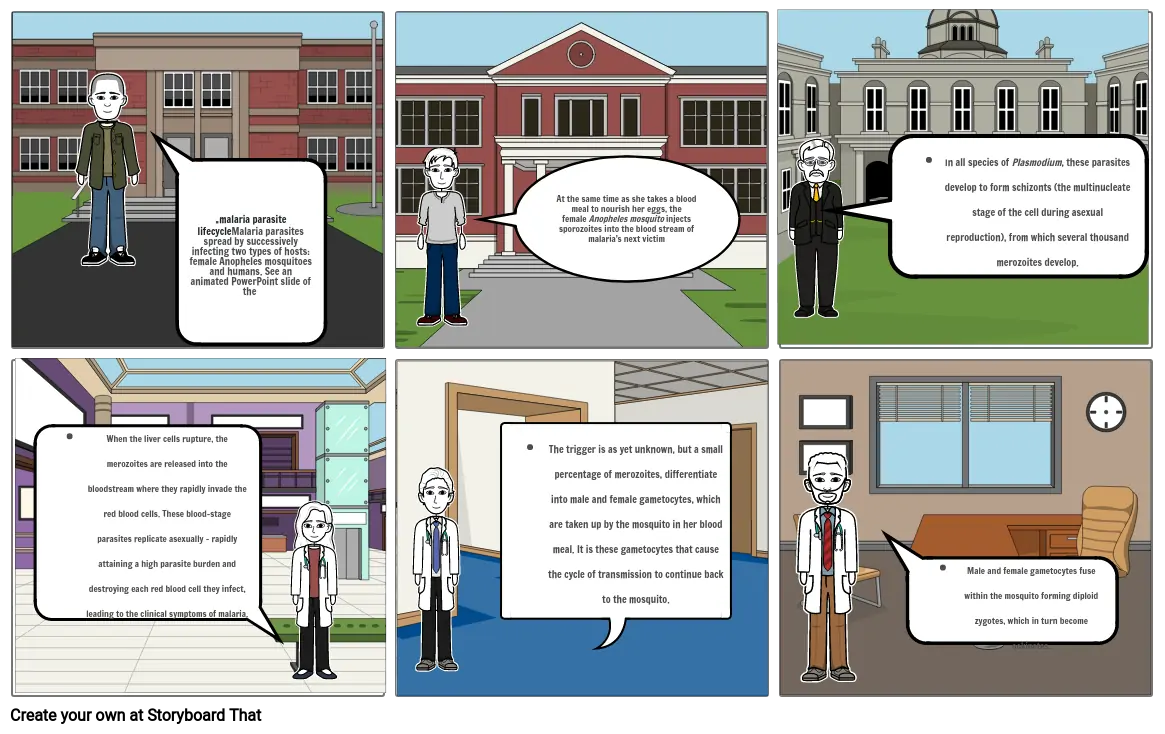parasite storyboard

Storyboard Text
- .malaria parasite lifecycleMalaria parasites spread by successively infecting two types of hosts: female Anopheles mosquitoes and humans. See an animated PowerPoint slide of the
- At the same time as she takes a blood meal to nourish her eggs, the female Anopheles mosquito injects sporozoites into the blood stream of malaria’s next victim
- In all species of Plasmodium, these parasites develop to form schizonts (the multinucleate stage of the cell during asexual reproduction), from which several thousand merozoites develop.
- When the liver cells rupture, the merozoites are released into the bloodstream where they rapidly invade the red blood cells. These blood-stage parasites replicate asexually – rapidly attaining a high parasite burden and destroying each red blood cell they infect, leading to the clinical symptoms of malaria.
- The trigger is as yet unknown, but a small percentage of merozoites, differentiate into male and female gametocytes, which are taken up by the mosquito in her blood meal. It is these gametocytes that cause the cycle of transmission to continue back to the mosquito.
- Male and female gametocytes fuse within the mosquito forming diploid zygotes, which in turn become ookinetes.
Over 30 Million Storyboards Created

